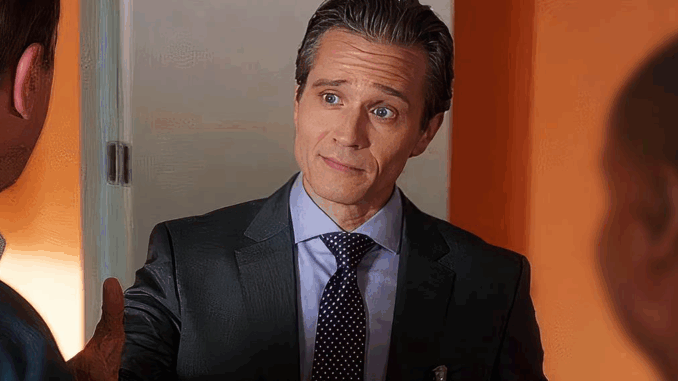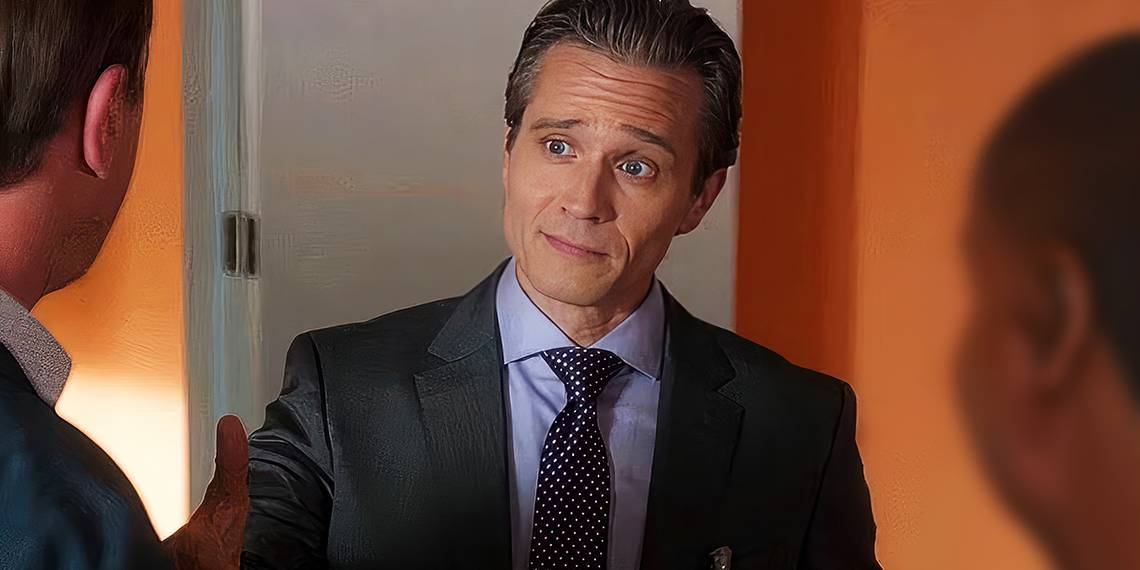
Alongside its cop procedural framework, the highly acclaimed show NCIS has consistently given us an overarching “big bad” to be wary of as we mull over the details of each weekly case. In Season 22, the show laid the groundwork for its next major villain right from the very first episode, or so we thought. Nick Torres (Wilmer Valderrama) was on an undercover mission that involved infiltrating a powerful cartel called Nexus, but his cover was blown due to a potential mole in the bureau. The MCRT’s investigation pointed to Gabriel LaRoche (Seamus Dever) being the mole, but the team’s ability to further explore this was curtailed by his new position as the deputy director of the NCIS, as well as a lack of solid leads.
This didn’t stop Timothy McGee (Sean Murray) from pursuing this theory throughout the season, leading to the Season 22 finale, where we find out that LaRoche was actually an undercover agent for the Department of Justice — he was the good guy. As such, the role of the villain was deferred to Carla Marino (Rebecca De Mornay), a criminal who came in later in the season and was revealed to be the head of the cartel. NCIS’s mole story completely disappears, and LaRoche ends up leaving the team, concluding the storyline with an unexpected, but disappointing, twist. This feels like a missed opportunity for NCIS, as it takes away one of its more exciting storylines of the season while also undermining a fan-favorite character.
LaRoche Should Have Been a Mole in ‘NCIS’ Season 22
LaRoche’s mole storyline was promising throughout Season 22 and could’ve developed into something more high-stakes and riveting if NCIS had decided to commit to it. The last time the show introduced a genuinely consequential mole was in Seasons 5 and 6, where Michelle Lee (Liza Lapira) was forced to work with a terrorist organization to protect her sister. She ultimately helped Leroy Jethro Gibbs (Mark Harmon) apprehend the head of the organization and was killed in the confrontation, but did spend the bulk of the two seasons spying on the team. At the end of Season 5, director Vance (Rocky Carroll) even dissolved the team temporarily to protect them from the suspected mole.
NCIS managed to create a compelling story using a character who unwillingly becomes a mole; imagine the emotional implications and danger of someone who actually was a villain. LaRoche could have easily fit into that category, and we assumed he was for the majority of the season. It felt like the show was drawing on its previous mole arc and ramping up the ante and stakes by placing him in a high-ranking position that was impossible for even McGee to touch for a while. The ramifications of a mole leading the team with the power and security clearance that LaRoche had would have been thrilling to explore, but his revelation as an undercover agent wastes that potential.
Dever’s performance in this ambiguous position also added to the promise of the storyline. He played LaRoche as vaguely seedy and disingenuous when he smiled overly wide or engaged with the team with slightly too much enthusiasm. Yet, he was still unnervingly likable, especially when he connected with McGee after inviting him to dinner. By striking this balance, we weren’t sure what to think about his subtly taunting behavior every time McGee accused him of hiding something, playing into that uncertainty to keep us on the hook. As such, using Dever in this role is also a missed opportunity, as even if LaRoche does come back in future seasons, he won’t have the same level of intrigue anymore — he’ll just be a regular good guy.
LaRoche’s Reveal in ‘NCIS’ Season 22 Undermines McGee
While dropping the mole storyline was a missed opportunity for the show and LaRoche, it also feels like a slight to McGee’s character. Throughout Season 22, McGee was dedicated to proving that LaRoche was the mole, keeping track of all his movements and jumping on every lead before anyone else on his team. He had to tread carefully, not only because of LaRoche’s position, but also because of the optics. From the outside, it may have looked like he was targeting LaRoche because of professional jealousy, since LaRoche got the job he applied for originally, a fact that LaRoche took advantage of in the penultimate episode, where he accused McGee of workplace harassment. As such, McGee put a lot on the line to pursue this line of investigation, only for it to pan out to essentially nothing.
It feels like a disservice to McGee’s investigative abilities and instincts, as he firmly believed LaRoche was the mole. As the longest-serving member of the team, you would believe his instincts and skills were honed enough to sense that something was off about his theory. He deserves more credit than single-minded obsession, especially if he was trying to apply for the more diplomatic role of deputy director, where his level-headedness would be valued. But the fact that he never even questioned his theory, coupled with LaRoche’s own semi-antagonistic behavior of verbally needling the agent, makes the revelation of LaRoche’s real role feel like it undermines McGee’s character. Sticking with the storyline would have been affirming for McGee, since even his team held some doubts. As such, perhaps the logistics of a mole in the bureau would have been tedious to work with, but the pay-off for both NCIS and McGee would have been worth it.
